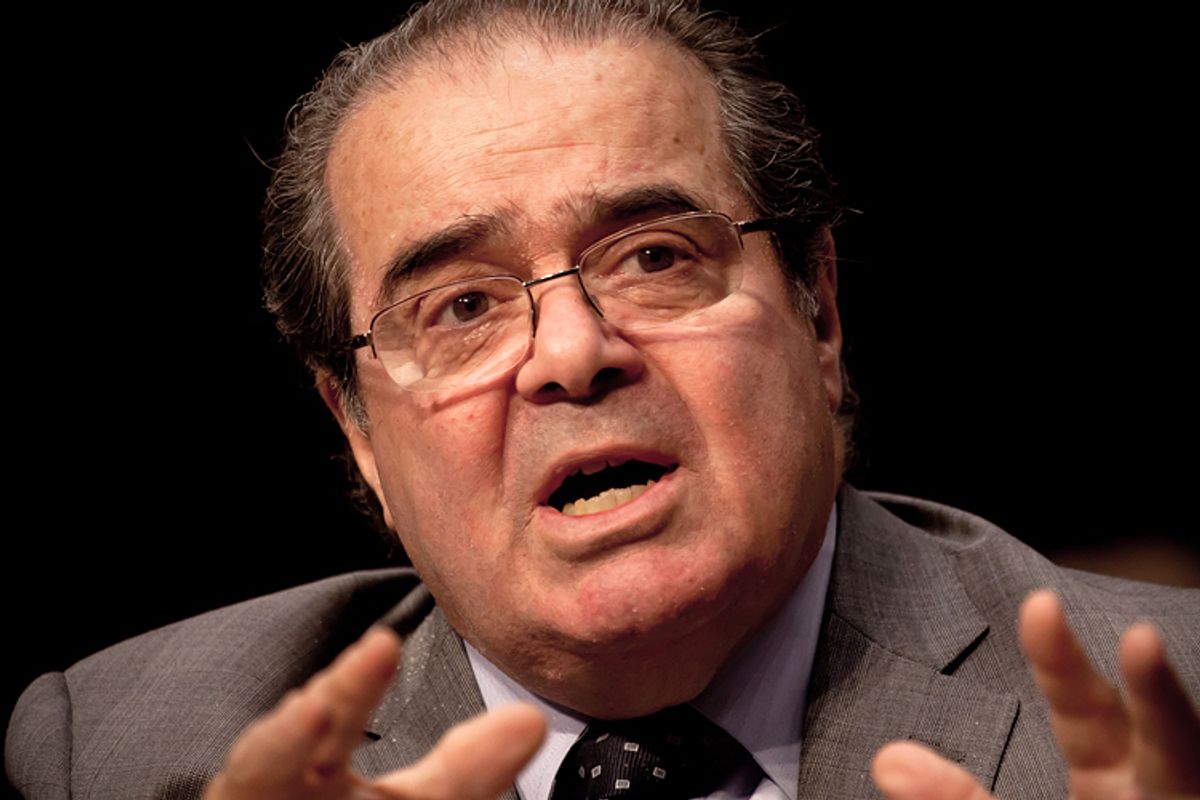Justice Antonin Scalia is famous for his acerbic, caustic and highly readable dissents. So when his latest was released on Tuesday, in which Scalia rails against the court's 6-2 decision to uphold the Environmental Protection Agency's right to regulate coal pollution that crosses state lines, observers of the court were ready to dive into another delicious Scalia attack.
But there's a problem — it turns out that Scalia's dissent makes a rare, clear and somewhat embarrassing factual error.
"This is not the first time EPA has sought to convert the Clean Air Act into a mandate for cost-effective regulation. Whitman v. American Trucking Assns., Inc., 531 U. S. 457 (2001), confronted EPA's contention that it could consider costs in setting [National Ambient Air Quality Standards]," Scalia writes in his dissent. But as Talking Points Memo's Sahil Kapur notes, Scalia's gotten the earlier case almost completely backward.
"The EPA's position in 2001," writes Kapur, "was exactly the opposite." In that case, the EPA was defending its right to not use cost concerns as a counter to health effects when writing certain air quality standards. The EPA won that case unanimously, with all nine justices taking its side. And the author of the opinion for the court on that case was none other than Scalia himself.
"Scalia’s dissent ... contains a hugely embarrassing mistake," wrote University of California-Berkeley law professor Dan Farber. "He refers to the Court’s earlier decision in American Trucking as involving an effort by EPA to smuggle cost considerations into the statute. But that’s exactly backwards: it was industry that argued for cost considerations and EPA that resisted."
Farber continued, writing, "Either some law clerk made the mistake and Scalia failed to read his own dissent carefully enough, or he simply forgot the basics of the earlier case and his clerks failed to correct him. Either way, it's a cringeworthy blunder."
Doug Kendall, the president of the Constitutional Accountability Center, a liberal legal advocacy group, said the error was mystifying and very unusual for a Supreme Court justice.
"It is a mind-blowing misstatement of a basic fact of the American Trucking Association ruling which Justice Scalia himself wrote. And it's not just a stray passage -- it's the basis for an entire section of the dissent," Kendall said. "It is very unusual to see a passage that so clearly misstates the fundamental facts of a prior ruling, especially one written by the justice himself."




Shares